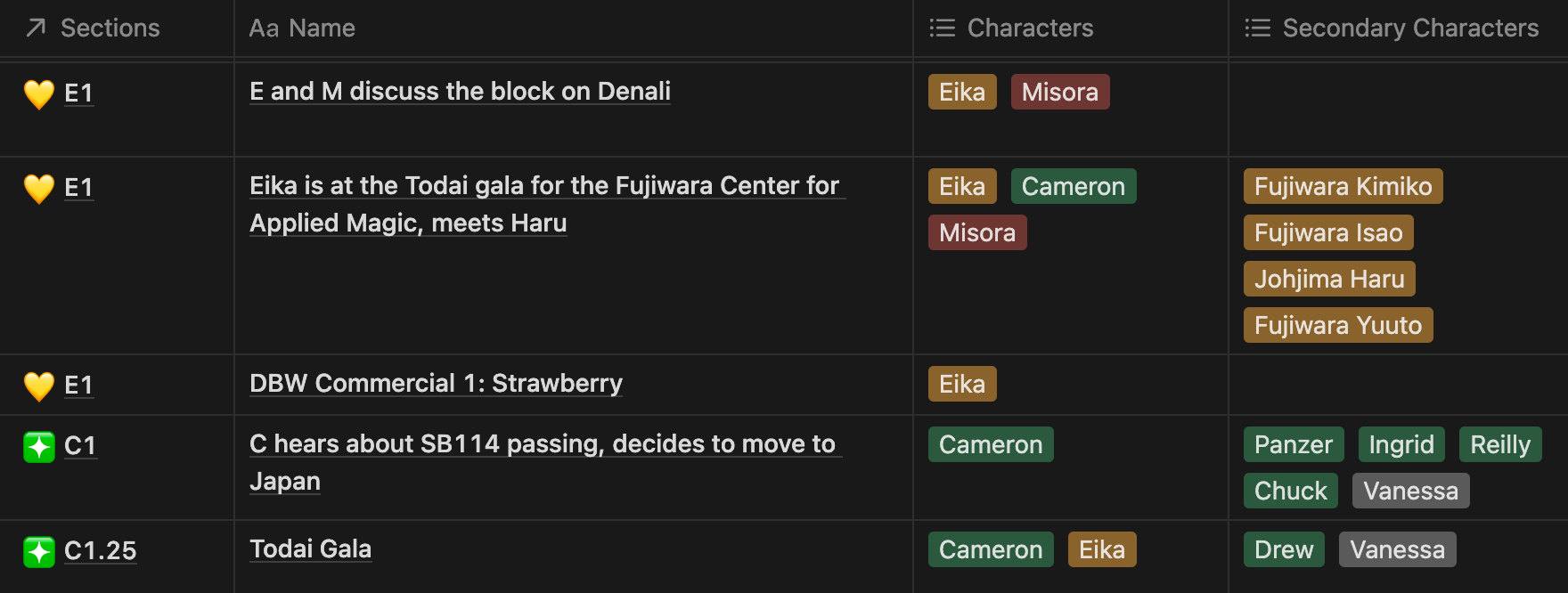Thoughts on Managing a Timeline, part 1


Time keeps going forward, day by day, at least in the real world. In The Butterfly Koi you may have noticed it works a little differently. Specifically, the timeline for each character runs sequentially but jumping between points-of-view means you may also be jumping back in time.
This story takes place over about six months, a short timeframe that means on some days there are many significant events happening for different characters at the same time. Some events are important enough that more than one character will touch on it from their perspective. This created some special challenges for tracking the timeline. First, it had to be consistent across perspectives to maintain plausibility. Second, in order for the story to make sense, I needed to track not just the order events would occur but also the order that readers would learn about them.
The first draft of a timeline was done in a simple Google sheet, but the limits of updating and maintaining a spreadsheet became evident quickly. Next, I experimented with Aeon Timeline, which was in a beta stage for the next major release where it didn’t quite meet my needs, though it does look like it has come a long way since then. Plottr seems like it’d work well for a standard story, but for the complexity of six timelines wasn’t enough. I’ve used Scapple and Scrivener, which are great on a single computer but don’t lend themselves to collaboration. So, finally, I ended up on Notion.
I’ll leave the full details to a future essay (or two or six), but in short Notion* is built around databases that can be interlinked. The first I created is a simple list of events, the scenes that make up the core of a timeline. Then, I created a second database for the chapters, named for the POV (you’ve just read C1.25 in that parlance), linking that parent chapter to each scene it includes. This made it possible to reference the scenes in two ways: both a sequential order by time, and then also the order as experienced by readers. It also created the opportunity to filter events down to where specific characters appear, and by extension what part of the puzzle they have seen.

This is all to say that, given years of careful combing and thought, I expect to make it about three chapters in before someone finds a first hole. When you do, please feel free to scream it into a paper bag and then bury that bag somewhere far, far away from here.
*Not a paid promotion but uh, Notion, if you want to send bags of money, I’ll happily filter that into more writing about the evils of your corporate clientele.
Let’s Talk
Have you wrestled with trying to manage a complicated writing timeline or other kind of database project? What did you try and what did you end up finding worked best in the end?

